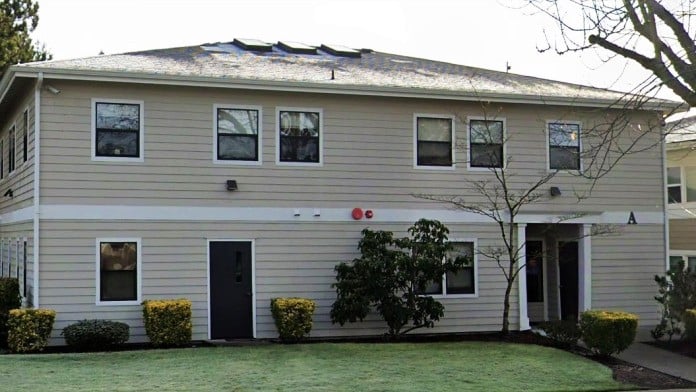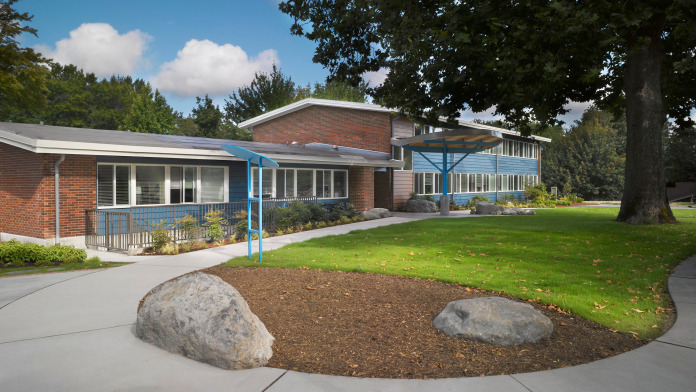The facility is filthy and disgusting! This place is supposed to be sanitary! Do you have any idea what type of diseases I can catch there!?
About Compass Health
Compass Health in Mukilteo, Washington, is a clinical facility that offers outpatient and inpatient treatment programs for individuals dealing with substance use disorders. At Compass Health, you can receive DUI evaluations, outpatient and intensive outpatient treatments and even aftercare programs. These services also include comprehensive assessments and case management services to help you get connected to exactly the care you need.
What strikes us most about Compass Health is its ability to provide both inpatient and outpatient care tailored to your needs. We like that their 16-bed Evaluation & Treatment Facility supports adults with acute behavioral health symptoms. Their partnerships with local courts and community centers make accessing services easier for you.
They accept private insurance plans, Medicaid, Medicare and self pay options to cover your care. Sliding scale payment plans can be made available to you depending on your financial situation. Cash payments are also accepted.
Things to Do Nearby
After your appointments you can visit Picnic Point Park which offers walking trails and beautiful views of Puget Sound. You might also explore the Mukilteo Lighthouse Park to enjoy beaches, picnic areas and scenic views. We feel that these places can provide some peaceful ways to relax and unwind after your treatment visits.
Extensive Services
Their outpatient services include substance use and DUI assessments, treatment programs, and random urinalysis screening. You might want these services if you’re seeking support to understand your substance use or need assessments for legal or personal reasons. Regular screenings can help you stay accountable and track your progress in recovery. The facility also offers aftercare support to maintain your progress. Their inpatient care provides a secure environment for adults with severe behavioral health needs.
Latest Reviews
Rehab Score
Gallery
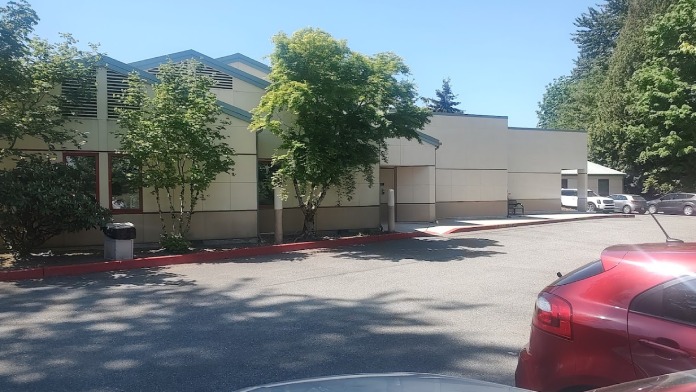
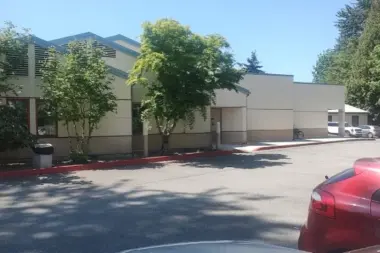
Accepted Insurance
Other Forms of Payment
Medicaid is a state based program that helps lower-income individuals and families pay for healthcare. Medicaid covers addiction treatment so those enrolled can use their coverage to pay for rehab. When a program accepts Medicaid the client often pays very little or nothing out of their own pocket.
Private insurance refers to any kind of healthcare coverage that isn't from the state or federal government. This includes individual and family plans offered by an employer or purchased from the Insurance Marketplace. Every plan will have different requirements and out of pocket costs so be sure to get the full details before you start treatment.
Self-pay involves paying for treatment out of your own pocket. You can use savings or credit, get a personal loan, or receive help from family and friends to fund your treatment. If you don't have insurance or your insurance plan doesn't cover a specific program, self-pay can help ensure you still get the care you need.
Financial aid can take many forms. Centers may have grants or scholarships available to clients who meet eligibility requirements. Programs that receive SAMHSA grants may have financial aid available for those who need treatment as well. Grants and scholarships can help you pai for treatment without having to repay.
Medicare is a federal program that provides health insurance for those 65 and older. It also serves people under 65 with chronic and disabling health challenges. To use Medicare for addiction treatment you need to find a program that accepts Medicare and is in network with your plan. Out of pocket costs and preauthorization requirements vary, so always check with your provider.
Addiction Treatments
Levels of Care
Residential treatment programs are those that offer housing and meals in addition to substance abuse treatment. Rehab facilities that offer residential treatment allow patients to focus solely on recovery, in an environment totally separate from their lives. Some rehab centers specialize in short-term residential treatment (a few days to a week or two), while others solely provide treatment on a long-term basis (several weeks to months). Some offer both, and tailor treatment to the patient's individual requirements.
Intervention services helps family or friends of addicts stage an intervention, which is a meeting in which loved ones share their concerns and attempt to get an addict into treatment. Professional intervention specialists can help loved ones organize, gather, and communicate with an addict. They can guide intervention participants in describing the damage the addict's behavior is causing and that outside help is necessary to address the addiction. The ideal outcome of an intervention is for the addict to go to rehab and get the help they need.
Treatments
The goal of treatment for alcoholism is abstinence. Those with poor social support, poor motivation, or psychiatric disorders tend to relapse within a few years of treatment. For these people, success is measured by longer periods of abstinence, reduced use of alcohol, better health, and improved social functioning. Recovery and Maintenance are usually based on 12 step programs and AA meetings.
Effective drug rehab in Washington integrates care for the whole person, offering comprehensive solutions to addiction. Treatment methods address mental, physical, and relational aspects of substance abuse.
A combined mental health and substance abuse rehab has the staff and resources available to handle individuals with both mental health and substance abuse issues. It can be challenging to determine where a specific symptom stems from (a mental health issue or an issue related to substance abuse), so mental health and substance abuse professionals are helpful in detangling symptoms and keeping treatment on track.
Opioid rehabs specialize in supporting those recovering from opioid addiction. They treat those suffering from addiction to illegal opioids like heroin, as well as prescription drugs like oxycodone. These centers typically combine both physical as well as mental and emotional support to help stop addiction. Physical support often includes medical detox and subsequent medical support (including medication), and mental support includes in-depth therapy to address the underlying causes of addiction.
Programs
Adult rehab programs include therapies tailored to each client's specific needs, goals, and recovery progress. They are tailored to the specific challenges adult clients may face, including family and work pressures and commitments. From inpatient and residential treatment to various levels of outpatient services, there are many options available. Some facilities also help adults work through co-occurring conditions, like anxiety, that can accompany addiction.
Young adulthood can be an exciting, yet difficult, time of transition. Individuals in their late teens to mid-20s face unique stressors related to school, jobs, families, and social circles, which can lead to a rise in substance use. Rehab centers with dedicated young adult programs will include activities and amenities that cater to this age group, with an emphasis on specialized counseling, peer socialization, and ongoing aftercare.
Clinical Services
Research clearly demonstrates that recovery is far more successful and sustainable when loved ones like family members participate in rehab and substance abuse treatment. Genetic factors may be at play when it comes to drug and alcohol addiction, as well as mental health issues. Family dynamics often play a critical role in addiction triggers, and if properly educated, family members can be a strong source of support when it comes to rehabilitation.
Group therapy is any therapeutic work that happens in a group (not one-on-one). There are a number of different group therapy modalities, including support groups, experiential therapy, psycho-education, and more. Group therapy involves treatment as well as processing interaction between group members.
In individual therapy, a patient meets one-on-one with a trained psychologist or counselor. Therapy is a pivotal part of effective substance abuse treatment, as it often covers root causes of addiction, including challenges faced by the patient in their social, family, and work/school life.
Amenities
-
Private Setting
Staff
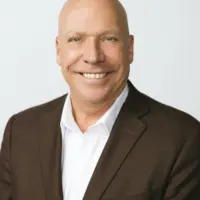
Tom Sebastian, MS, MPA
President & CEO

Becky Olson-Hernandez, LMHC, CMHS
Chief Quality Officer
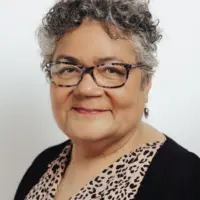
Connie Summers, MS, HRD
Chief People & Culture Officer

Janet Carbary, CPA
CFO

Dr. Kathryn Gilligan, MD
Chief Medical Officer
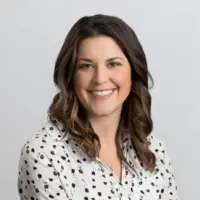
Missy Judd
Chief of Staff

Stacey Alles, LMHC, GMHS
COO

Tom Kozaczynski, MPA
Chief Advancement Officer
Contact Information
10710 Mukilteo Speedway
Mukilteo, WA 98275



